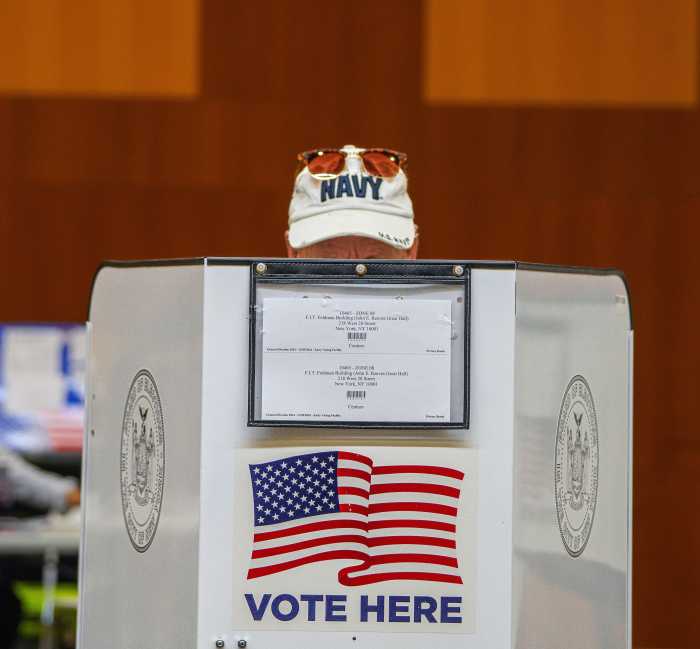A Dark And Stormy Night
Halloween has never been nearly as frightening as the current state of affairs in Washington. Debt ceilings, sequesters, threats of a government shutdown, a $17 trillion deficit and a train wreck of a rollout called Obamacare. The nation’s capital has turned into a haunted house without the fun. Perhaps Edward Bulwer Lytton, a mid-19th century English novelist, best described the heavy atmosphere when he minted perhaps the most famous line in all of Gothic literature: It was a dark and stormy night. Our politics are indeed dark and stormy.
Obamacare is the eye of the storm, both because of the ensuing chaos and ineptitude regarding the near impossibility of signing up for it, despite the hundreds of millions of dollars spent creating a user friendly website and Republicans overplaying their hand in responding to its unprecedented incursions. Ulysses S. Grant may not have been a political genius, but his descendants in the GOP would have been well served if they followed his sage advice: The best way to repeal a bad law is to strictly enforce it.
The planets in the political solar system seemed ripe for such an auspicious alignment of repudiation of Obamacare. But lately, Senate Republicans never miss an opportunity to miss an opportunity. Instead of demanding that Obamacare be defunded immediately, they should have opted for a timely postponement of one year to see how the program works. This would have cast the Republican Party in the light of reasoned moderation, especially when Obamacare so badly and embarrassingly stumbled out of the gate.
Discretion is still the better part of valor and if things unfold as conservatives predict, then the Republican Party would be a fortunate beneficiary. Instead, Ted Cruz, Mike Lee and others decided to do a political re-enactment of Custer’s Last Stand, causing the Republican Party’s approval rating to plummet to 24 percent, the lowest percentage recorded since polls were first taken.
Unfortunately, the postponement strategy was misunderstood by the more zealous faction of the party. Rather than a veiled attempt to negotiate surrender terms, it would have been a shrewd gambit in making the Democratic Party solely responsible for Obamacare. If Republicans prove to be right, and I think they are, this brand of government intervention, cloaked in the appallingly misguided language of civil rights, will be lacking in terms of overall medical care and punishing in terms of overall costs to the working classes.
Cruz and company, however, chose a self-defeating strategy. As I pointed out in a recent column, there is no way to repeal existing law without a Congressional majority, something the Republicans are sorely lacking. The upshot of Republican tactics is that the Democrats, who have their bloody fingerprints all over Obamacare, obtained political cover by being distracted by Republican histrionics. History, it’s been said, never repeats itself but it does rhyme. What happened in 1995, when Republicans were punished for shutting the government in response to Democrat spending excesses, should have been warning enough to repeat such a foolhardy strategy. A dead end is still a dead end no matter how fast the car is going.
I’m by no means unsympathetic to Senator Cruz’s political ideology or the unthinking rashness of the underlying tenets of Obamacare. I’ve said so on numerous occasions. The gnawing fear that Cruz and others felt was that of hidden cost, which has been the principal subterfuge and greatest saving clause of the liberal welfare state. People see only the subsidies and not what these programs actually cost them, it’s the ultimate sleight of hand making people feel like they’re getting something for nothing, hence the overwhelming popularity of these programs. Isn’t this why Eisenhower did not repeal Social Security or why Richard Nixon and Ronald Reagan did not repeal Medicare and Medicaid?
Such precedents would be an important consideration before drawing a line in the sand, except for one important difference. Obamacare is not like Social Security, or Medicare, or Medicaid, where costs are cryptic or clandestine. Under Obamacare the costs are transparent; like hot air, premiums will rise and the American people will see them rising. What will happen when people see their current plan, which most subscribers feel satisfied with, discontinued because it fails to meet the requirements of the Affordable Care Act. Poor people will be protected from their increase of subsidies and the very ill protected by the law’s requirement that insurers charge the same price regardless of the individual’s health. But everyone else will pay more, especially the young, one of the president’s core constituencies. Working Americans will have to surrender some of their assets to pay for it all.
Ultimately the glitches in the system will be resolved, but the escalating costs will most likely remain. And it will be escalating costs, not some abstract philosophy on America’s free market health care system that will change minds. As unhappy a development as Obamacare is, it pales in comparison with Medicare and Medicaid, which are large single payer programs that cover almost 90 million people. Obamacare is just another financial burden on an already overtaxed system that is deeply rooted in Lyndon Johnson’s Great Society. Because costs are plainly understandable and readily discerned, this would have been the time for Republicans to focus on the need to shop for more affordable coverage on their own, rather than depending on the government for insurance. Unfortunately things became clouded by a lot of sound and a good deal of fury from those whose heart was in the right place but whose strategy was mistaken. They should have listened to General Grant.





























